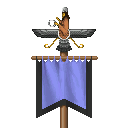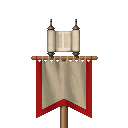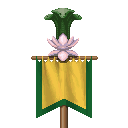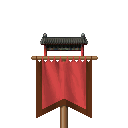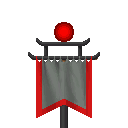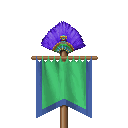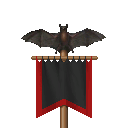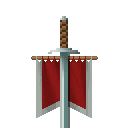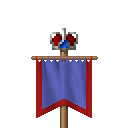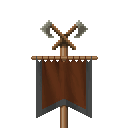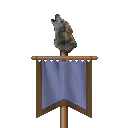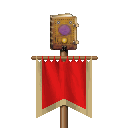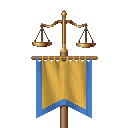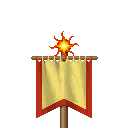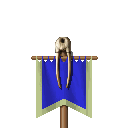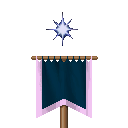Nations of the Late Ages
The Late Ages (LA) is one of three eras that the Player can set their game in.
LA has the most advanced technology of all the ages but magic is at a low ebb. The magic users of the world are better at researching, though, and what they lack in depth of magic power, they make up for in variety. The lands are wealthier than they have ever been, and humans vastly outnumber all other sentient species.
It's the end of the world. The thirty surviving nations know this is the deciding time, and they are willing to sacrifice anyone, and in some cases everyone, to get what they want.
Arcoscephale is a Hellenistic realm, not unlike Antigonid Macedon or Seleucid Babylon. Once the kingdom spanned wide, from a land blessed by the sunrise to a land where apes wear scale armor, but no longer. Due to the influence of Orphic poets, most now regard that time as a zenith, and the current era as a nadir to someday rebound from. While most priestesses try to hasten Arcoscephale's "rebirth" by dumping pigs into pits, the sibylline seers have seized the chance a Pretender offers…






Phlegra is a city-state of Cyclopean citizens and human Archons (administrators). Like some parody of ancient Sparta, the Cyclopes are far outnumbered by Phlegra's human helots (slaves), and must remain martial to keep them from revolting again; the last revolt took every other city from them, though it also ended a period of tyranny by far-more-monstrous giants. The Cyclopes believe their old Tyrants will never return, but the Archons and helots grow uneasy…






Pangaea is a dominion of centaur (half-horse) lords, satyr (half-goat) soldiers, minotaur (half-bull) guardsmen, and harpy (half-vulture) scouts. Some say the Pangaeans defy their nature to imitate civilization, while others posit that their sole purpose in life is to survive; the truth is likely somewhere in the middle. The day may come when the mages of the wild and the priestesses of revelry are fully replaced, but their Pretender still needs them…






Pythium is an ancient and venerable Empire, now possessing more lived centuries than what it split from. Its real-life analogue would be Rome around the time of Constantine, or perhaps an early Byzantium without Christianity. The old state religion has been unseated, and by a serpentine fad no less, but winning hasn't made the other competitors disappear. Still, the devils the Pretender knows are better than whatever fiends lurk beyond…






Lemuria is a land ruled by lemures, shades who wear the mantles of their former roles. The name is an exonym; its locals call it Ermor, or Sceleria, or whatever Empire they served in life. Thanks to the work of Thaumaturges ("miracle-workers"), they may return from the Underworld to continue their glorious work; however, most of them are too immaterial to hold a real plough or purse. "No matter", says the spiritual soldier; "I can still push the bounds of civilization…"






Compared to how it started, Man is currently a low fantasy kingdom. Unfortunate things would happen wherever the "Old" witch magic was used, so it is now forbidden; their illusion spells are allowed, however, as per the ruling of judges in powdered wigs. Even today, Magisters (academics) in their stone towers are trying to find strong replacements for the old ways, but some of them cannot cast a single spell… Ten years well spent, if you asked me.






Compared to where it started, Ulm is currently a high fantasy kingdom, though not in a good way. The realm had gone without sorcery for far too long, and now it is salted with shadows and scares. Technology has regressed due to the mistakes of the priests, who can fix the old Blacksteel tools but lack the resources to replace them, and seemingly every third person is either an "Illuminated One" or a vampire… But on the bright side, pet wolves are common.






Agartha is a city-state in the underearth, belonging to humans with pale skin and wide eyes; whether they are born this way, or simply adjust after a few decades, is unknown to the surface. The rulers are of two kinds, those who learned magic aboveground and fled persecution, and those who were born and raised in the Agarthan arts. All Agarthans owe their lives to the previous race of inhabitants in one way or another, and these extinct beings are shown more respect than anything else…






Marignon, a fantasy version of Spain (and possibly France), has sold its soul. The Inquisition insists that they had to do it; it was either a soulless existence, or an inevitable death. What do the Marignese do now, now that they are hypocrites destined for Hell? Try to extend their lives? Fill their time with frivolities? Hunt for others to blame? All of the above, and more. At least their Pretender God is merciful and forgiving… assuming the being has any say over the afterlife, and isn't a poser.






Abysia is a theocracy that preaches self-hatred for most of its populace. These common people didn't do anything wrong; their parents just had too many kids, and Abysia's volcanic heart is supposedly tired of the growing mundanity. The priests genuinely believe it, longing for the days before the warlocks crossed lava-born men with human women, and they memorialize pure-blooded lava-men on a regular basis. And the warlocks just keep trying…






Ragha is a fantasy version of pre-Islamic Persia, possessing two peoples who live next to each other. In Tur, there are men from Abysia who fight on various mounts. In Ragha Proper, there are men from a land called Caelum who can fly. Both groups share a pantheon and a vehicle of worship, but they are diametrically opposed on the details. The elites hate each other and loathe to make fools of themselves, so they only take jobs when the weather suits them… if it ever does.






Caelum is a mountainous land, whose peaks host white-and-gray-winged peoples, and whose valleys host their brown-and-black-winged counterparts. The latter groups, known collectively as "the Raptors", have a tumultuous past; they were culled of their elders upon joining the kingdom, and they were later driven out by the "magocracy". Did the Raptorian mages deserve such treatment? None dare to ask. Will the current elders repeat whatever made their forefathers so despised? None dare to divine…






Gath takes its name from one of the cities of the Philistines, foes of the Hebrews before King David. In Gath reside the final descendants of the fallen Azazel, among other tribes of lesser beings driven there by war. Many are banned from blacksmithing, to stem violent unrest, and all must worship the same Lord in the same temples. All of the Lord's sheep are equally valued, on the altars that once served as dinner tables for far-more-wasteful kings…






Patala is the aquifer of a great rainforest realm, where dropped jewelry and gems find a new home in the palaces of nagas. The snake-folk have become aware of the kingdoms of primates above and have usurped their kings with glamorous deceit; who could say no to one claiming to be their ancestors' god, with the same appearance and voice? Even if the lie were exposed, the primates would still serve, preferring a magical overlord over another monkey…






T'ien Ch'i is a fantasy version of China's Yuan Dynasty, when the entire "Celestial Realm" was beneath nomadic chieftains. If there is an Emperor in this land, he is of the race of Khans who roam freely, disrupting the old institutions wherever horses may graze. The Khans and their tribes behave as they have for centuries, albeit far richer than before. They are grounded by the spirits of their ancestors, and the farming peoples live both in fear and in awe of them…







The Jomonese, and their neighbors who came from T'ien Ch'i, are at peace. This was hard-earned, wrest from goblins who would have them be slaves, who in-turn stole them from the barbaric Oni. None of the mercenaries who liberated Jomon shall act as the old kings, lest the others rally against them for breaking the gentleman's agreement. These are isolated humans, however; surrounded by reasonable spirits and amicable beasts, they know little of how behind they are…








Named after the Aztec underworld, Mictlan is a wet empire: wet with rain, wet with seawater, and wet with blood. Priests insist upon the sacrifice of virgins for the good of the nation, though those dedicated to the Rain express confusing reasons, such as a conquest of all waters. The Rain Priests also look strange, but gods and their closer servants rarely appear normal. The gods themselves have no idea who these blue beings are, but at this point the blood must flow…








Named after the Mayan Underworld, Xibalba is a vast cavern with a pervasive damp smell. Its common inhabitants are the bat-like Zotz (K'iche for "bats"), while the dwellers of its flooded basement are the toad-like Muuch. The Zotz walk and fly through the halls of their distant ancestors, their faith and traditions deeply changed by the era-long Flood, but they dare not visit the Muuch god-kings; unless they are summoned, of course, in which case they rush to the swamped city below…






C'tis takes after ancient Egypt, in one of the eras long after the Pyramids were built. The great river floods less than before, and the black land gradually turns red (in ancient Egyptian terms). This process claimed the tombs of the old kings first, preserving them for this very moment. Only the priests may approach them, lest one yearns for a swift death. Magic of the desert crosses with ancient rituals of "rebirth", replacing what is old with what is even older… By the way, they're all lizard-people.






Midgård (or "Middle-Earth" in Middle English) is the domain of all living men, according to the human Jarls and their subjects, though outsiders mistake it for the name of their confederation. The Jarls are considered blessed by the Vanir, former masters of the lands they reside in. Few know how diminished the Vanir are from their glory days, but their servants and students have a good idea of their state, and they worship them nonetheless…






Bogarus (roughly "God's Russians" in Russian) is a dominion of lords and heroes, who live in an archipelago of comfort and consider themselves an Empire. Faith is no small matter here, inspiring hordes of commoners (and a few superhumans) to notable deeds; the latter inspire poems and conquests, while the former attain divine attention through self-destruction. The Rusians' greatest feats happen behind closed doors, however, or behind thick lines of levies…







In Norse myth, Utgård is either the edge between human lands and Jotun lands, or the boundary of Yggdrasil's reach. In Dominions, it is seemingly both. Here the Jotunar (giants) have accepted human neighbors, and here the best remaining diviners glimpse the flow of time through a lonely well. Ageless and devoted, the Nornir weave the past, the present, and the future, though their control over the present is largely illusory…






The Vaettir are household goblins of the Gygjor, Jotun wives. Normally they would be out of Vaettiheim, diligently serving their gigantic mistresses; the Gygjor are more embittered than usual, however, and have moved in with their servants out of spite. Told to prepare for war, the Vaettir make chainmail and crossbows outside their forest hovels, while their wives devise minor magical plots within them, now with the help of their idols…








Feminie is a Queendom of lady-knights and sorceresses. Their matriarchy predates their civility, which was brought about by a fascination with the book magic of evangelizing Magi. Very few know that Feminie still exists, ever since the first sage-queen pulled the tatters of a holy veil over their lands, causing it to disappear from view. In solitude, the ladies continue to unwind and weave the esoteric arts of the Magi, gleaming a different but powerful understanding of their secrets…






Piconye is an Empire, or at least a kingdom of petty kingdoms, of little men with horns. They follow the example of "giants" (normal-sized men) before them, who spoke with angels and commanded countless peoples in the name of their God, down to adopting the very same titles. In truth, their predecessors left enormous shoes to fill; none of the old Prester King's vassals will serve the new ones, for example. The little men will have to punch above their weight…
![]()
![]()
![]()
![]()
![]()
![]()
![]()
![]()
The Calystrii of Andramania are enlightened beings, dogmen given a quest of self-training by human Viceroys long ago. They wear human clothes, most of them eat human food, and they live in a republic similar to that of Ancient Rome. In fact, they consider themselves far more civilized than humankind. But the Calystri ideal is still out of reach; most dogmen still eat meat, and they still struggle to see past the physical and the present for the higher truths…






Pyrène was already corrupted in the Middle Ages, but now new blood has seeped all the way through. Its kings are no longer brave, its nobles are no longer rebellious, and its monks are no longer studious. Like some parody of a late French court, the lesser nobles whore themselves out to their "betters" for a chance of a merged bloodline, so that their children may have red skin emblematic of a true half-demon… and the priests cynically approve.






Zemaitia harkens back to East Prussia and the Terra Mariana, in what are known today as the Baltics. Founded by Ulm before Bogarus came to be, it was a fortress colony in the Middle Ages, something of a quiet middle finger against Vanarus. They chose a less than ideal spot; not due to the chill or the elves, but due to the trees themselves. The location has had a more severe impact on Zemaitia's post-Ulm patrons, who have mutated in these whispering woods…







Erytheia is a fantasy version of Ptolemaic Egypt. Its Ptolemy was a Merman who married the land's Arcoscephalian heiress, inherited everything after her death, and has kept everything in his own family ever since. Erytheian nomarchs (governors) maintain peace both on land and beneath the waves, but the King and his sister-wife (or the Queen and her brother-husband) are the support columns for "both worlds", regardless of their competence or stability…






Unlike most examples, this Atlantis yearns to sink. It currently rests upon ice, in the only corner of the world that will accept it. Its frogmen left the sea long ago, and none dare check if the waves will welcome them back, let alone forgive them for their cowardice. In their frosty purgatory, the Atlantians have developed an Inuit-like culture, where a tent is far more impressive than any igloo or ice palace; time will tell if their new practices can redeem them…






R'lyeh is a state of mind, shared by both the Triton slaves underwater and the human cultists onshore. It was once controlled by the Starspawn, squids who've seen the Void, or so they thought; the true master of R'lyeh has emerged from a deep sleep to one with dreams, which make themselves real without a moment's notice. The Starspawn now reject reality as it is, either for what they wish it was, or what their God told them it could be…







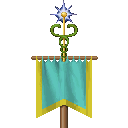
 1
1
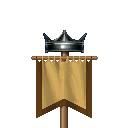
 1
1
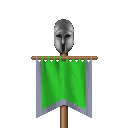
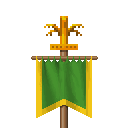
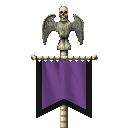

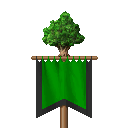
 1
1
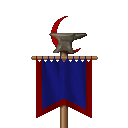
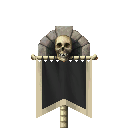
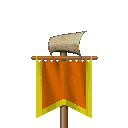
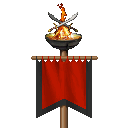
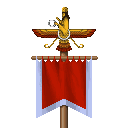
 1
1